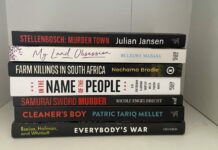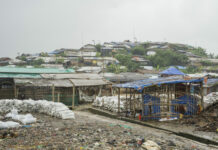A new UN report released last week found the Myanmar government has murdered, raped and tortured Rohingya civilians in a string of brutal assaults on the minority in the northern Rakhine state last October.
Included in the death toll were the slaughter of an eight-month-old child and two others no older than six years old, who were stabbed to death by security forces. The UN report described the incidents as “revolting†and “devastating crueltyâ€. As part of the operations, some 66, 000 had fled into neighbouring Bangladesh where they were interviewed by UN investigators.
“I call on the international community, with all its strength, to join me in urging the leadership in Myanmar to bring such military operations to an end. The gravity and scale of these allegations begs the robust reaction of the international community,†UN Human Rights Chief Zeid bin Ra’ad said.
The conditions for the Rohingya have been poor for decades, but they have rapidly deteriorated over the past five years.
Myanmar authorities have shown little interest in investigating the crimes and even less ambition to stop them from taking place.
And no one seems interested in taking up the cause of the Rohingya.
The case of the Rohingya, considered among the most persecuted minority on earth, has nonetheless curious linkages to South Africa.
The Rohingya living in Myanmar need special passes to travel, marry, practise their religion, even receive health care. They are not second class citizens. They are not even citizens, having been stripped off their citizenship in 1981.
Theirs is a daily diet of structural discrimination, racism and prejudice towards their language and ethnicity. They are treated in much the same way black South Africans were treated during apartheid.
And over the past year they have been stigmatised, harassed, isolated, and their rights have been even further undermined. As per the findings of the latest UN report, there is evidence of ethnic cleansing and even crimes against humanity.
Our history it turns out, is not altogether unique.
Our fight against apartheid is not over until everyone’s struggle against injustice is over. The conditions in the Rakhine state are an emergency and they deserve our attention.
We call upon the South African government to show moral leadership in this regard and illustrate that we will not be party to the subjugation of others.
It is part of the mandate of Department of International Relations and Cooperation (DIRCO) to monitor international developments and contribute to the formulation of international law and adhering to its provisions. It is part of the DIRCO’s mission to promote multilateralism so that there might be a rule-based international system.
But the South African government has remained silent about the crimes committed by the Myanmar government on the Rohingya.
Here is what we want: we want Myanmar’s government out of South Africa.
We call upon the President Jacob Zuma and Minister Nkoana-Mashabane to withdraw our ambassador from Myanmar and expel the Myanmar’s diplomatic ties.
Our silence has cost us enough lives already.
Share this post.
Make a noise. Demand justice.









